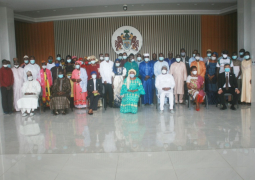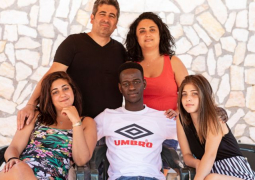It could be recalled that the National Nutrition Agency (NaNA) earlier announced a US$10 million project dubbed ‘Nafa Quick package’, aimed at contributing to the mitigation of the social and economic impact of COVID-19 on the population.
Briefing the media last Tuesday, NANa officials explained some of the challenges they encountered during the first leg of the ‘Nafa Quick transfer’ tour, mainly from the beneficiaries and those who are not eligible.
In his presentation, Malang N. Fofana, program manager, at NaNA, said the challenges they faced on their first-round were the non-availability of proper documents such as Identity Cards (ID cards), passports, voter’s card, driving license, residential permit or Alien ID card for non-Gambians.
“Those who are eligible and don't have proper documents, a chance is given to them to work on their documents and receive their package”.
Other challenges, he added include the dissemination of false information on eligibility, saying people who are influential in their area manipulate the situation by lobbying for non-eligible households or those without proper documentations.
“Also, several households try to split their households to get more benefits based on the experience from the rice distribution by either increasing their household sizes or breaking households into small units”.
Based on those challenges, Fofana stated that they would make sure they work harder and tackle those challenges.
The entire project, according to NANa officials, amounts to US$31m with the World Bank contributing $30m, while The Gambia government shoulders the difference.
Nafa Quick, is a government program with the objective of providing cash transfers and behavioral change activities to poor households in 30 districts (83, 000 households) in the country as part of a broader response to the COVID-19 pandemic.
Read Other Articles In National News




